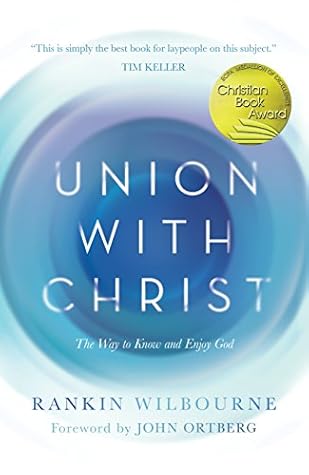More on this book
Community
Kindle Notes & Highlights
Read between
December 30, 2023 - February 9, 2024
You can place this as the purpose over each new day: pursue holiness, not as a bar to live up to, but as an ennobling compliment to live into.
As we have been looking at life as a quest, we have seen that our union with Christ gives us a new identity, found outside of ourselves. With this new identity, we gain a new destiny, a new horizon—the image of God being restored in us, and a new path toward that horizon: pursuing holiness.
You can’t undo your past, but Jesus being seated means you don’t have to be defined by it.
Your faith is absolutely necessary, but it is the object of your faith, not the strength of it, that matters most.
No man knows how bad he is till he has tried very hard to be good.
Only those who try to resist temptation know how strong it is.
“Grace is not opposed to effort, it is opposed to earning.”
In our walk with God, faith always comes first because unless you are sure that you are safe with God and certain that God is not disappointed in you, you will never seek his face.
Repentance is not simply feeling sorry for what we’ve done or confessing where we’ve failed. Nor is it simply resolving to do better. Rather, repentance is turning back to God in all of life. If sin is running from God to get control of our lives, then repentance is turning back to God and yielding control to him.
In that clash of wills—Jesus or you?—repentance is letting God’s quiet voice become louder, larger, and stronger in your life.
These two steps of faith and repentance are the basic movement of the Christian life.
It’s been said the Christian life is like playing with a yo-yo while walking upstairs. There are a lot of ups and downs, but the overall direction is up. What matters most is not how far along we are but what direction we are facing.
Above all, what will make this day a good day will be abiding in Christ today, listening to his voice, keeping in step with his Spirit, walking in faith and repentance.
They are ordinary means God has provided for us to experience his extraordinary grace.
Oswald Chambers once said, “The greatest enemy of the life of faith in God is not sin, but good choices which are not quite good enough. The good is always the enemy of the best.”
the call to persist in prayer is not for God’s sake, but for ours—to train and purify our desires.
As Søren Kierkegaard put it, “This is our comfort because God answers every prayer, for either he gives what we pray for or something far better.”
(The Christian community has been memorably compared to Noah’s ark—the stench on the inside would be unbearable were it not for the alternative outside.)
There’s the art of abiding—he is unable to do this without God, yet he is humbly asking God to enable him to do it.
the love of God for us does not change, but our experience of his love does.
Jesus couldn’t be clearer that we will know God better by obeying him more.
Our response to God is not the root of his love; it is the fruit.
One of the Puritan writers put it memorably, “Your heart is not the compass Christ saileth by.”
Union with Christ is the secret to communion with God.
And nothing can cause you to lose heart like suffering. But neither can anything lead you into God’s heart like suffering can.
the storms of life can lead you where you want to go, as long as communion with God is your horizon.
What you need most is only to know the central claim of this book—you are not alone, Christ is with you, in you, and you are hidden in him.
Union with Christ means you are in Christ and Christ is in you.
And this storm may yet be God’s instrument to remind us (or those around us) of our utter dependence on the grace of God.
If the means of grace we discussed in chapter 12 are the ordinary means of abiding in Christ, suffering is the extraordinary means God has provided for us to move toward communion with him.
But suffering also makes the art of abiding (believe and repent, again and again) and the ordinary means of abiding (prayer, meditation, worship, and community) as needful and essential to us as medicine is to someone who is ill.
In short, when we know our suffering can’t mean God doesn’t love us, suffering becomes a spur to “keep drawing the sail,” keep drawing near to God, even when we are confused or disappointed and may feel like pulling away.
Accordingly, we must be both the declaration community and the demonstration community.
When the twentieth-century theologian Karl Barth was asked, “When were you saved?” he famously answered, “It happened one afternoon in AD 34 when Jesus died on the cross.”
The rivals to Christ’s supremacy have been decisively defeated but not yet destroyed.
And one day he will return as King, to complete the new creation his own resurrection has begun.
Jesus sees into the very depths of our shame and pours his love into these broken places.
We don’t become something more than human. We become fully human when God joins his life to ours.
union with Christ brings together what we so desperately need today: the highest theology and the deepest spirituality.


